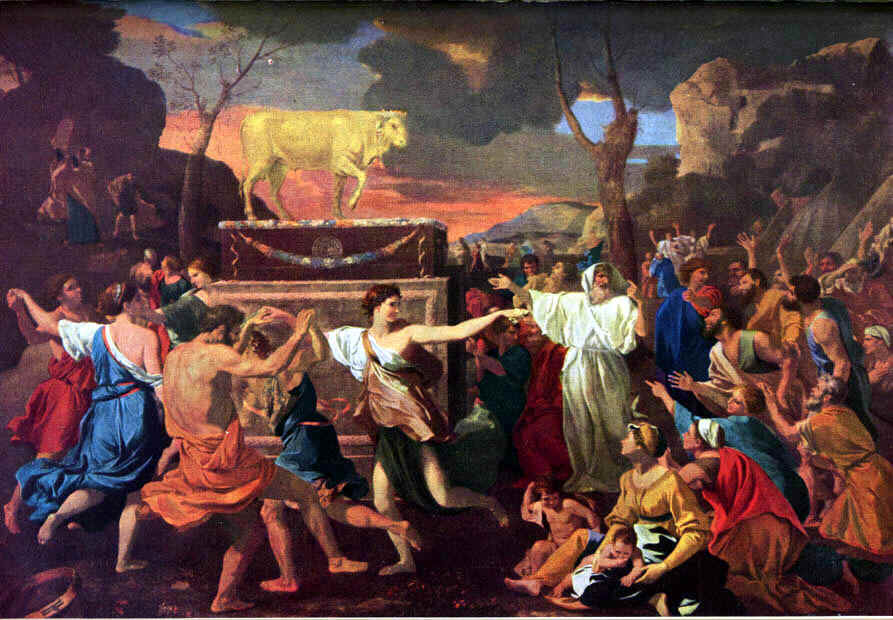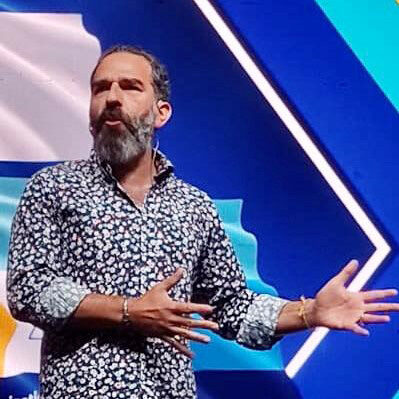At a time when Jewish unity, Ahavat Hinam vs. Sin’at Hinam (baseless love vs. baseless hatred), and acceptance of Klal Israel must be pursued, the topic of self-hating Jews and loyalty to the land and people of Israel is on the minds of many. In my heart of hearts I pray, and in my day to day I strive to (re)connect Jews to one another, and yet as a long-time activist, educator, and fan of Jewish history, I know that there are forces in our midst whose presence goes against the very nature of Jewish unity, compassion, unconditional love, and loyalty to the land and our people. Here are my bitrei zuzei on this topic.
The Ancient Lesson of the Erev Rav
The Erev Rav, meaning “mixed multitude” in Hebrew, refers to the group of non-Israelites who joined the Israelites during the Exodus from Egypt. Jewish tradition recognizes their profound influence on the nascent nation—sometimes beneficial, often problematic. Most notably, they played a significant role in the incident of the golden calf, leading the people astray when Moses delayed on Mount Sinai.

Today, the term Erev Rav has evolved in Israeli Hebrew to describe someone perceived as a traitor—someone who may appear to belong but whose actions undermine the very community they claim to represent. This ancient concept offers a lens through which to examine a contemporary challenge: distinguishing between loving criticism of Israel and destructive opposition masquerading as concern.
The Moral Weight of Identity
History teaches us a sobering lesson: Jewish birth confers belonging, but it doesn’t guarantee wisdom, loyalty, or moral clarity. Consider Karl Marx, whose Jewish origins did nothing to prevent him from developing theories that would later justify the persecution of Jewish communities. Similarly, some early Bolsheviks who orchestrated the destruction of Jewish life in Eastern Europe were themselves of Jewish descent, wielding their revolutionary fervor against the very communities that had nurtured them.
The tragic irony is that many of these Jewish revolutionaries genuinely believed they were creating a better world, even as they systematically dismantled the communities that raised them.
During the Holocaust, there were Jews who served as capos—collaborators with the SS. They were Jewish by birth, but once they began brutalizing their own people, they severed themselves from the moral bonds of Jewish peoplehood. The same principle applies today: when individuals use their Jewish identity to legitimize ideologies that harm Jewish communities and security, they forfeit the moral weight of that identity.
Unconditional Love vs. Unconditional Support
Here lies the crucial distinction: unconditional love is not the same as unconditional support. A parent loves their child unconditionally, but that doesn’t mean approving of every choice the child makes. Genuine love often requires difficult conversations and criticism.
The same applies to our relationship with Israel and Am Yisrael. Unconditional love means maintaining an unwavering commitment to the survival, security, and flourishing of the Jewish people and the Jewish state. But it also means caring enough to want Israel to live up to its highest ideals—distinguishing between criticism that seeks to strengthen and criticism that seeks to tear down.
The Litmus Test: Intent and Outcome
How do we distinguish between loving criticism and destructive opposition? The answer lies in examining both intent and outcome.
Loving criticism:
- Comes from genuine care and investment in positive outcomes
- Seeks to strengthen institutions rather than destroy them
- Maintains context and proportionality in assessments
- Offers constructive alternatives rather than mere condemnation
- Recognizes Israel’s right to exist and defend itself while critiquing specific policies
Destructive opposition:
- Uses Jewish identity as a shield for positions that harm Jewish interests
- Employs disproportionate language that singles out Israel for unique condemnation
- Ignores or minimizes threats to Jewish safety and security
- Questions Israel’s fundamental right to exist or defend itself
- Aligns with those who seek Israel’s destruction while claiming moral high ground
The Modern Erev Rav
Today’s Erev Rav are often those born within who have adopted ideologies fundamentally hostile to Jewish survival and flourishing. They may speak Hebrew, hold Israeli passports, or have Jewish grandmothers, but their actions consistently align with those who seek to weaken or destroy Jewish institutions and the Jewish state.
These modern members of the Erev Rav often cloak their opposition in the language of justice, human rights, or progressive values. They may genuinely believe in their cause, just as the Bolsheviks genuinely believed in theirs. But good intentions do not absolve one of the responsibilities to examine the real-world consequences of one’s actions and alliances.
When Jewish voices are used to legitimize boycotts that harm Israeli workers, when Jewish academics provide cover for movements that deny Jewish peoplehood, when Jewish activists join coalitions that celebrate violence against Jews—these are not acts of loving criticism. They are acts of betrayal, regardless of the motivation behind them.
The Responsibility of Belonging
With belonging comes responsibility. If you claim membership in the Jewish people, if you invoke your Jewish identity to give weight to your words, then you bear the responsibility to consider how your actions affect your people’s welfare. This doesn’t mean blind loyalty or refusing to acknowledge wrongdoing. It means ensuring that your criticism serves the goal of strengthening rather than weakening Jewish life and Jewish security.
Real solidarity sometimes means having difficult conversations behind closed doors rather than providing ammunition to those who wish us harm. It means choosing your battles carefully and your allies wisely.
The Eternal Choice
The story of the Erev Rav reminds us that the choice between building and destroying, between loyalty and betrayal, is eternal. Those who choose the path of loving criticism—who commit themselves to strengthening rather than weakening—honor the best traditions of Jewish ethical thinking. They recognize that true love sometimes requires difficult conversations but always maintains sight of the ultimate goal: a Jewish people that survives, thrives, and contributes to the betterment of the world.
Those who choose the path of the modern Erev Rav may feel the temporary satisfaction of moral superiority, but they contribute to the ancient pattern of internal destruction that has plagued Jewish communities throughout history.
In the end, unconditional love for Israel and Am Yisrael means committing to their flourishing, even when that requires the hard work of honest, constructive, and caring critique. It means choosing unconditional love over critical betrayal. That is the eternal lesson of the Erev Rav, and it remains as relevant today as it was in the wilderness of Sinai.
Am Yisrael Chai is not just a slogan, it is a way of life – Rabbi Leor Sinai.


Excellent essay!! Thank you!
thank YOU!